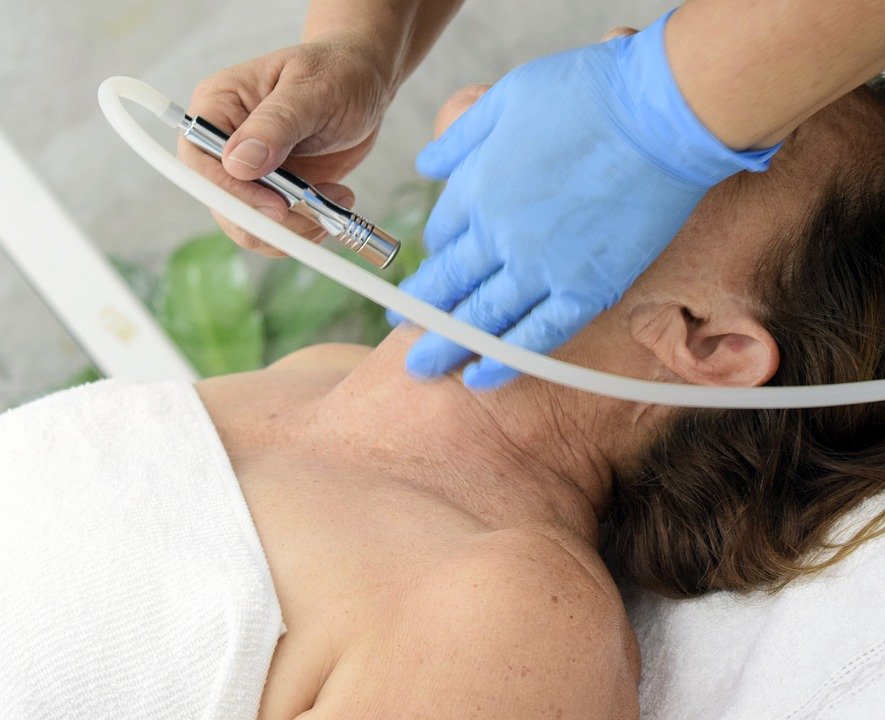The Dermapen is one of the newest revolutions in anti-aging and anti-acne therapy which improves the condition and appearance of the skin. It is a micro needling device that involves perforating the skin repeatedly with its tiny needles, which helps in promoting collagen and elastin induction. This process helps the skin in repairing and rejuvenating itself, leaving it tighter, smoother and younger-looking.
The Dermapen makes for an excellent alternative device to the derma roller. While both the Dermapen and the derma roller have the same fundamental functions and benefits to the skin, the Dermapen is easier and more efficient to use.
For these reasons alone, Dermapen skin therapy has become one of the sought-after procedures in skin care treatments today. It promises – and truly delivers – the reduction of common skin problems such as acne scars, wrinkles, fine lines, stretch marks, cellulite and hyperpigmentation, among others. It has become popular for its ease of use and effectiveness. It brings satisfactory results in such as short time and at a relatively low cost.
So, are you “qualified” or suitable for Dermapen treatment? The Dermapen is a good alternative for people who:
- Need a rejuvenation of the skin by increasing its density and elasticity;
- Need to get rid of their facial and bodily scars;
- Need to get rid of their wrinkles and fine lines;
- Need to get rid of their stretch marks and cellulite;
- Need to get rid of the damage caused by the sun;
- Need to reduce or eliminate hyperpigmentation; and so on and so forth.
The Dermapen is a skin micro needling technique that triggers collagen and elastin production which enables the skin to repair, regenerate and heal itself, making it tight, smooth and younger-looking. The Dermapen is a much less painful and invasive skin care treatment compared to other procedures such as laser treatments, skin surgery, and chemical peels – and none of them brings the desired results as satisfactorily as the Dermapen does.
How is the Dermapen treatment done?
You may be surprised to find out that the Dermapen treatment is fast and simple. First, the skin’s problem area is applied with Emla cream (or any other numbing creams) and then disinfected. Next, the doctor chooses the right depth of insertion and begins the procedure.
The Dermapen’s needles are made from either surgical steel or molybdenum. These needles should come sterile before piercing the patient’s skin. As these needles pierce the skin, they regenerate the skin’s depth of 0.5 mm to 2.5 mm. The most crucial part of this procedure is the needles having punching holes vertically without destroying their structure.
The entire Dermapen procedure typically takes 15 to 20 minutes, but it depends on your body part being treated or your skin condition.
The stages of Dermapen micro needling
After undergoing a micro needling treatment using the Dermapen, you can expect to undergo the following skin healing stages:
- Inflammation – Erythema, or redness of the skin from the inflammation due to micro needling, is a phase that occurs after the treatment is complete. The redness lasts usually about 48 hours. There may be a slight swelling during this phase. A cool mask soaked in hyaluronic acid significantly helps in minimizing redness, soreness and inflammation by at least 50% in about 30 minutes.
- Proliferation – In this phase, the wound is re-built with new granulation tissue which consists of Type III collagen (the temporary type of collagen) and elastin. A new network of blood vessels forms and develops as well. This phase may reach its peak after two months.
- Maturation – Also known as “remodeling,” this phase sees the wound being replaced by new blood vessels and skin tissues. The Type III collagen is also being replaced by the Type I collagen, which is a stronger and more durable type of collagen that can contract and create the tightening bond on the skin.
What are some of the contraindications of Dermapen treatments?
The Dermapen treatment is not for everyone though, and professional practitioners are always cautious with their treatments.
The contraindications of the Dermapen treatment are similar to those of typical mesotherapy. These contraindications and precautions include (but are not limited to):
- Skin diseases caused by viruses, fungi or bacteria;
- Raised scarring;
- Eczema;
- Psoriasis;
- Herpes;
- Raised moles;
- Warts;
- Skin cancer.
A person cannot undergo Dermapen treatment also if:
- Pregnant, lactating, or breastfeeding;
- Having a history of diabetes;
- Having cardiac abnormalities;
- Taking blood thinners;
- Taking non-steroidal or anti-inflammatory drugs;
- Suffering from systemic diseases (metabolic or cancerous).
It’s always recommended to consult your doctor first before even considering a Dermapen treatment.

